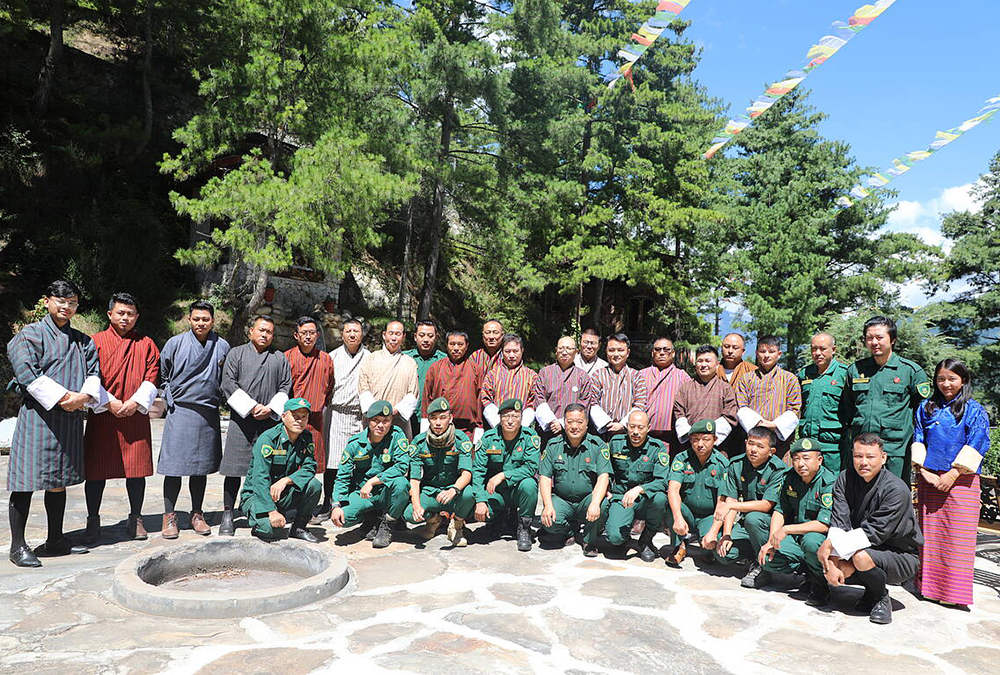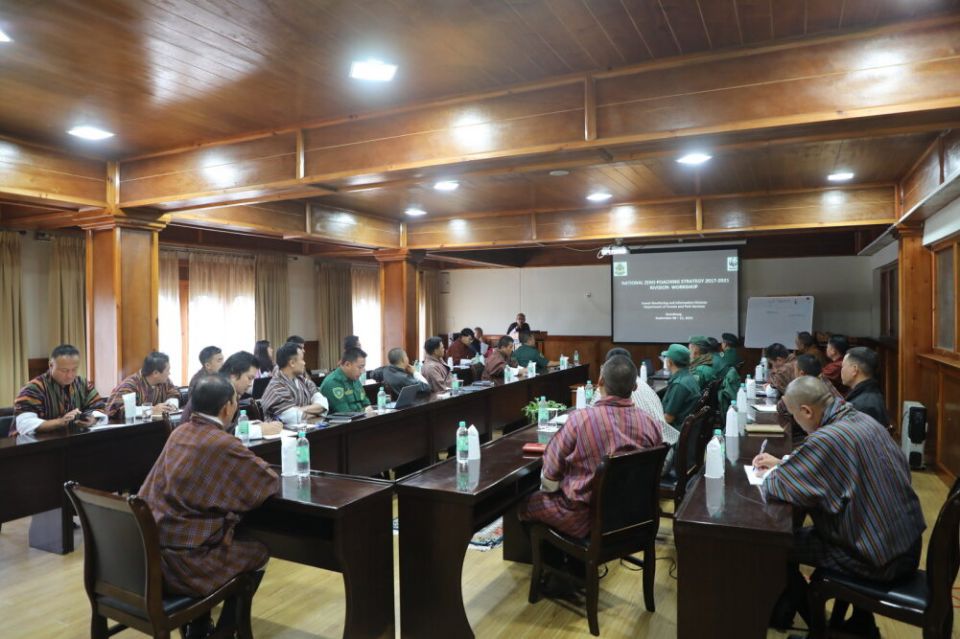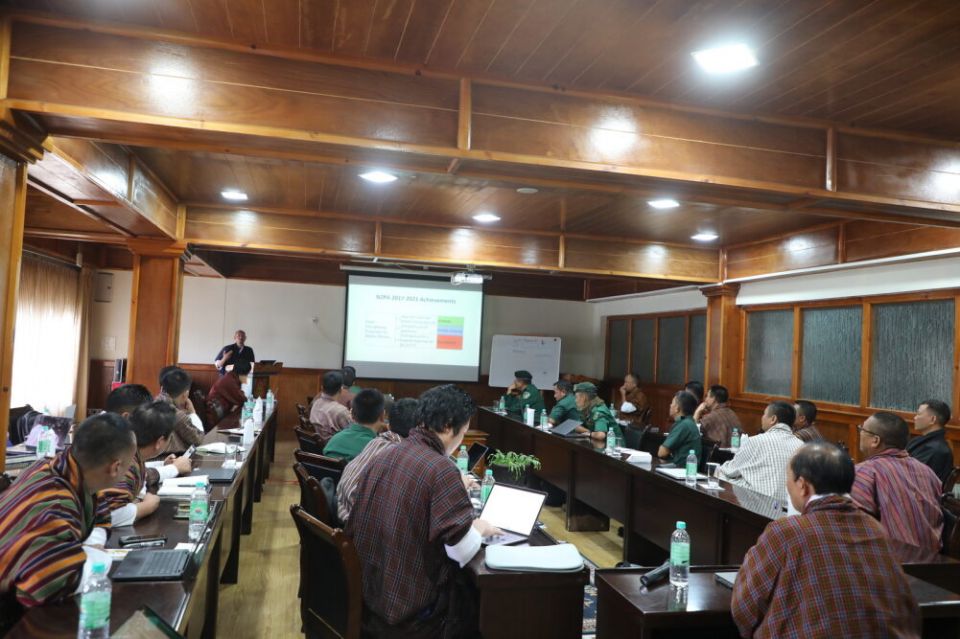
The illicit trade in wildlife is gaining alarming traction within the country, as instances of wildlife poaching and apprehensions continue to rise.
The surge in demand for wildlife parts on the global black market serves as a tempting lure, fuelling the flames of wildlife crime.
The recently concluded “Zero Poaching Strategy Workshop” spanning five days, shed light on the grim reality that illegal resource extraction and poaching have evolved into one of the most lucrative global enterprises.
Globally, illegal wildlife trade has now become the fifth most profitable illicit trade, raking in over USD 10 billion annually.
This rampant trade imperils the existence of globally endangered species such as tigers, elephants, and other vital wildlife.

Kinga Norbu, senior forestry officer at the Department of Forest and Park Services (DoFPS), said that the national zero poaching strategy aims to foster collaboration and coordination with law enforcement agencies while enhancing institutional capacity.
“The strategy will facilitate the procurement and utilisation of cutting-edge technology and equipment, as well as mobilise resources to fortify measures against poaching and wildlife crimes,” he said.
Some objectives from previous strategies, he said, were not achieved due to insufficient resources, and retaining trained officials has proven challenging. “Forestry cases require multifaceted support from various enforcement agencies, highlighting the crucial need for coordination and collaboration with the national enforcement agency.”
The effort is centered on revising the existing poaching strategy and exploring innovative approaches to preventing poaching and curbing illegal wildlife trade within the nation.
The first national zero poaching strategy was crafted in 2016 through the collaborative efforts of the World Wildlife Fund Bhutan (WWF Bhutan) and DoFPS. This strategy endorsed the adoption of state-of-the-art technology in patrolling, capacity development training, and the facilitation of projects related to anti-poaching initiatives by divisional forest offices.
In 2022, the department recorded 1,284 forest and wildlife offences, including 23 poaching cases. Between 2017 and 2021, Bhutan recorded over 108 cases of mammals being poached, with Himalayan black bears, musk deer, and tigers ranking as the most poached species.
Illegal fishing cases, predominantly linked to Brown Trout, have become increasingly prevalent, with 565 cases reported in the past five years.
During the workshop, participants delved into six key pillars—assessment, technology, capacity building, community involvement, prosecution, and cooperation—designed to combat the scourge of wildlife crime, which has far-reaching implications across various sectors.
It was observed that a significant portion of the poaching and illegal wildlife crimes were perpetrated by the younger population. Moreover, illegal trade poses a serious threat to the local ecosystem while undermining the nation’s commitment to biodiversity conservation.
The perennial issue of human-wildlife conflict profoundly impacts farming communities, with annual crop losses ranging from 19 to 43 percent due to wildlife damage. This, exacerbated by the country’s location as a trade route, has contributed to the surge in illegal poaching activities.

Charting a way forward against illegal wildlife trade
To combat wildlife crime, poaching, and retaliatory killings, the Conservation Law Enforcement Curriculum Framework (CLECF) was launched last year. This initiative ensures that those safeguarding wildlife receive updated skills and knowledge.
In 2017 SMART patrolling system was introduced in some of the protected areas, and will now be replicated across the country. The system, initially piloted in 2013 at Royal Manas National Park, integrates data from ranger patrols, analyses local poaching trends, and gauges progress in law enforcement, thereby enhancing ranger effectiveness.
In 2021, Bhutan established a regional hub to tackle the issues of illegal poaching and trade, bolstered by data and information crucial for policy-making processes. Furthermore, Bhutan joined 12 other Tiger Range Countries to eliminate poaching in key sites for tigers, elephants, and rhinos.
This strategy promises to cultivate improved and structured inter-agency partnerships.
At the community level, efforts are concentrated on community engagement, participation, and empowerment to mitigate human-wildlife conflicts.
Initiatives such as electric fences, insurance schemes, and community-based response groups have been set in motion, although their success remains limited thus far.
Currently, the country has 1,200 rangers across various divisional offices and branches, working to protect its rich natural heritage.
Coordinated by WWF Bhutan and DoFPS, the workshop in Bumthang saw the participation of 30 officials from functional divisions and field offices under the DoFPS.












